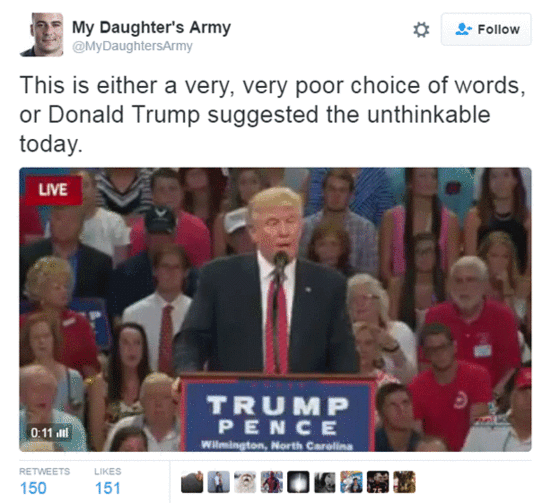In “Donald Trump’s Chilling Language, and the Fearsome Power of Words,” Michiko Kakutani’s smart Vanity Fair “Hive” piece about the dishonest, nihilistic and potentially lethal lingo of the new President, she characterizes her subject as “part Don Rickles, part George Wallace.” I’ll disagree in that Rickles is a genius employer of English, an Einstein of insult comedy. Trump’s nastiness may have been effective to this point, but comparing him to Rickles is like saying someone who slices off their tongue with a rusty can is just like Harpo Mark. I’ll stick with my Lampanelli-Mussolini comparison.
Kakutani homes in ably on Trump and his team’s mission to render words beyond a baseball cap slogan meaningless, to create chaos so that anything is possible, including unspeakable things. But even if the Administration can continue to convince a sizable minority of the country that language means little, reality will intervene. As Eliot Cohen, a former Dubya State Department official tells her, the radical imprecision of Trump’s utterances “is going to greatly magnify the danger of miscalculation by all kinds of people.”
An excerpt:
The speech itself was divisive and pointedly aimed at Trump’s base, pitting the people against the establishment, the heartland against Washington. It painted a darkly dystopian picture of a United States in decline (“This American carnage stops right here and stops right now”) and beset by violence that he promised to fix—a picture that stands in sharp contrast to the reality of a country in which crime is low by historical levels and the economy has been steadily growing, adding jobs for 75 straight months, the longest streak on record. Trump’s candidacy was predicated on breaking rules, and his Inaugural Address was no exception. There was no poetry in the speech—no soaring words, no invocation of the liberty and freedoms granted by the Constitution and Declaration of Independence, or the special qualities that have made America, as Ronald Reagan said, quoting John Winthrop, a shining “city upon a hill.”
Instead, Trump used the occasion of the Inaugural—traditionally an opportunity to bring the country together, to lift and inspire, to remind the country of its shared ideals and rededicate it to a common mission—to deliver a lumbering variation on his doom-and-gloom speech from last July’s Republican National Convention. It recalled the polarizing, red-meat stump speeches that he served up to rallies last year; the nihilistic passages in his books in which he describes the world as “a horrible place” where “lions kill for food, but people kill for sport”; and the apocalyptic worldview of Bannon, who has made a series of films depicting Western civilization under threat from foreigners and from rot within.•

